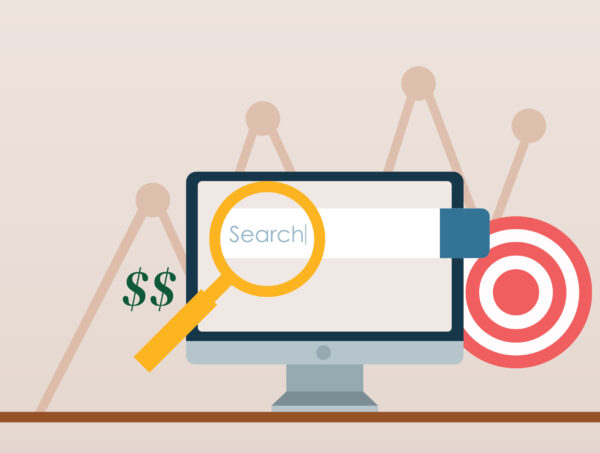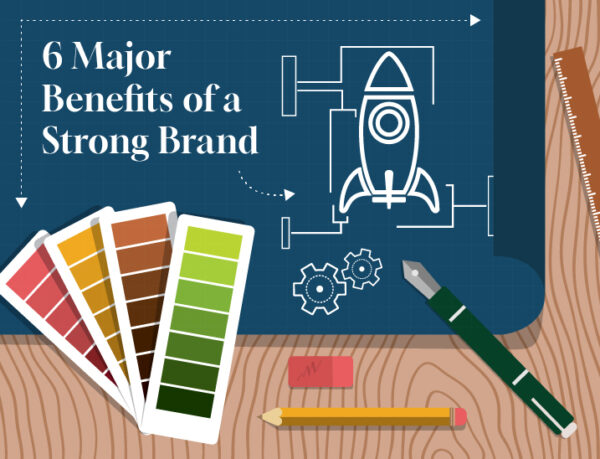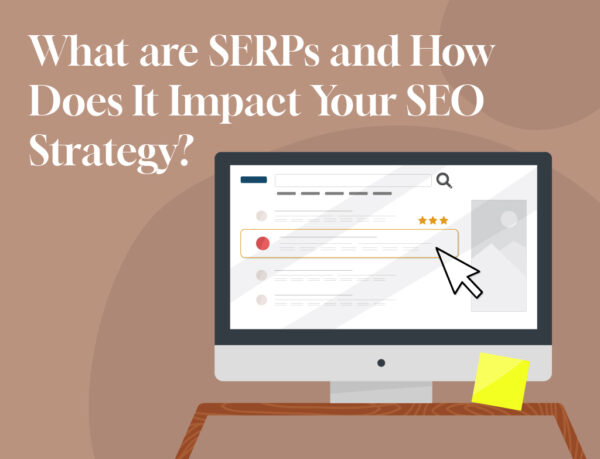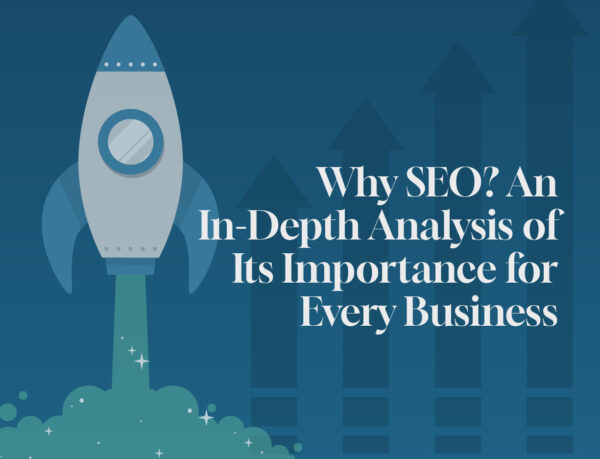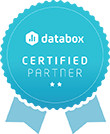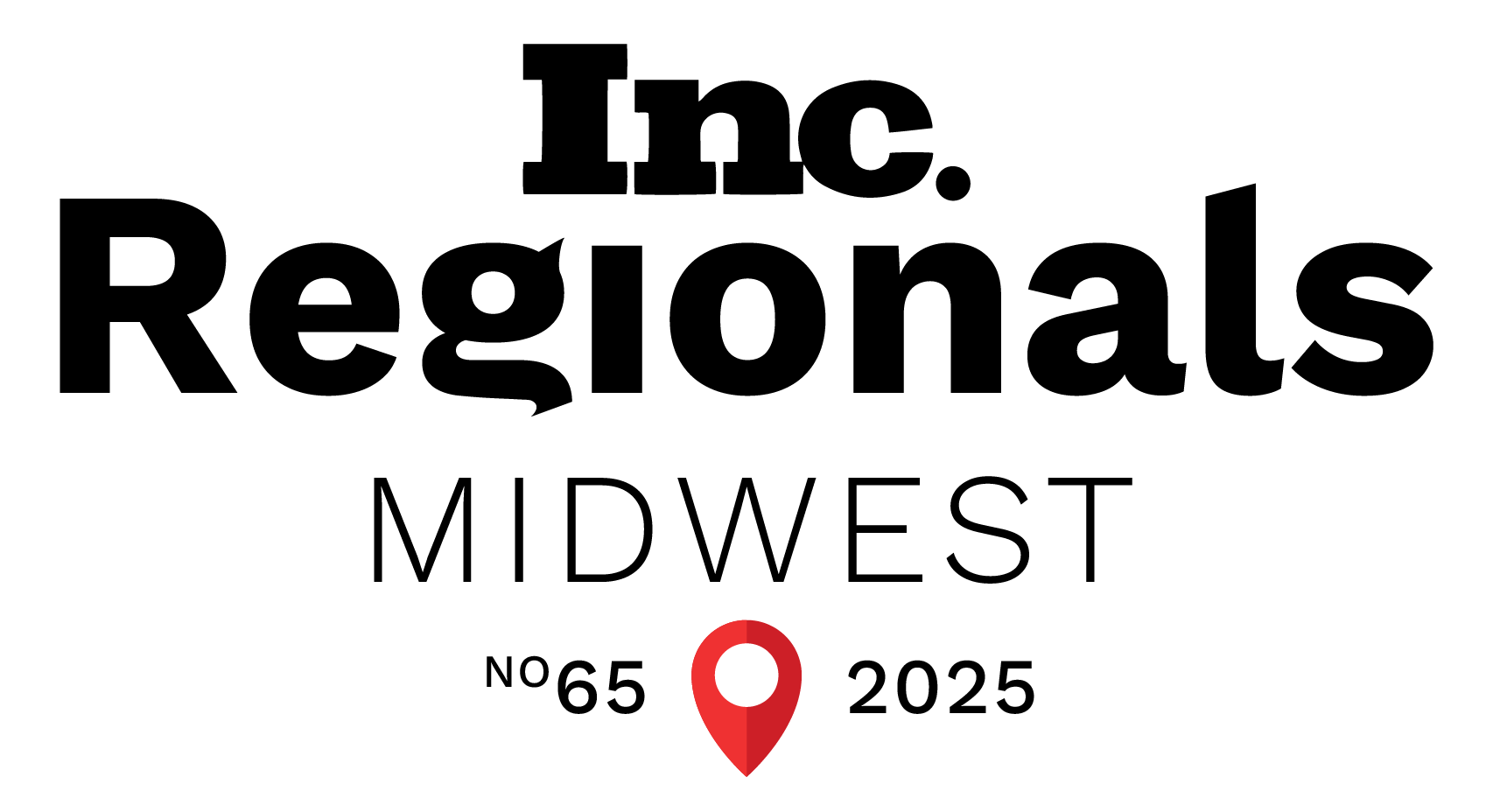What is Digital Marketing?

In This Article
When you have a question about, well, anything really, where do you typically turn? If you answered Google, you’re not alone. Almost since its very beginning, people have used Google as a verb. Even the show Buffy the Vampire Slayer tossed the term out in an episode back in 2002, making it the first show to use the term on television. (As a little factoid, the character Willow also befittingly described Google by saying “it’s a search engine.”)
Here’s the thing about the simplicity of that statement: it’s really not that simple at all. There is a scarce amount of opportunity for visibility on a search engine results page (SERP). When people Google an inquiry—i.e., type into the little search bar—there is a massively intricate system that crawls, indexes, and ranks websites to present results to searchers.
Search engines also display ads at the very top based on audience, payment, location, and… well, we’re getting ahead of ourselves. What does all of this have to do with digital marketing? Well, just about everything!
Digital marketing efforts are put into place to ensure that the right people—the internet users who are in need of and want your product or service—know who you are and what you’re all about.
This digital marketing definition is fairly new, originating in the early 1990s with the formation of the World Wide Web, which was created by computer scientist Tim Berners-Lee and his team in 1989. And this is what eventually led to the creation of search engines like Yahoo, Bing, and Google.
Google itself was created by Larry Page and Sergey Brin in 1995 and officially became a company in 1998. Starting in Page and Brin’s dorm room, the search engine was once called BackRub (we gasped, too). Today, Google now has an estimated 63,000 searches per second, which roughly translates to 5.6 billion searches per day.
If we’re talking numbers—and here at Metric Marketing, we are all about the numbers—digital marketing is used in social media every day. Today, 71% of American adults are active on social media, a majority of whom use Facebook and YouTube. Zooming out, Facebook has 2.8 billion monthly active users worldwide.
When you look at the number of users that are active online every single day, you realize that digital marketing is not just an option, it is a necessity.
What Is Digital Marketing?
Digital marketing is the production and implementation of marketing strategies that use electronic devices and measuring tools to reach a business goal. Any effort put forth to market your business online is digital marketing.
However, strategic digital marketing leads to the best results. At its core, digital marketing is about nurturing a relationship with the right people so they can move from audience members to loyal customers, all through the efforts of marketing online.
Why Is Digital Marketing Important?
One of the key reasons why digital marketing is so important is because it is measurable.
Digital marketing allows you to take a look at key performance indicators (KPIs). A digital marketing KPI is a measurement tool that you can use to track how well or poorly a marketing campaign is performing. When you can see the results in numerical form, you can make informed decisions about how to proceed with your marketing strategy.
Digital marketing makes it possible to communicate with a specific target audience. Doing so allows you to focus your business on people who have the most demand for your product while tracking the results of how those people respond to your marketing.
In addition to tracking metrics, it’s important to remember that the global pandemic shifted even more people online. Digital marketing plays a huge role in e-commerce. According to the U.S. Census Bureau, e-commerce sales in the U.S. amounted to $204.6 billion in the third quarter of 2021. That’s 12.4% of all U.S. retail sales.
Even if you are not an e-commerce business, digital marketing is important to reach your online users. You may be surprised just how many of your potential customers are searching online for products just like yours. They want to have your input and your product. It’s just a matter of whether or not they are aware of your existence. Digital marketing can make sure that they are.
Digital Marketing vs. Traditional Marketing
Digital marketing and traditional marketing share the same goal: to promote your business. However, their methods and mediums are very different. We need to first differentiate between what is online marketing and what is traditional marketing.
While digital marketing utilizes electronic techniques, traditional marketing takes the “old fashion” off-screen* marketing rout. We say old-fashion lightly—traditional marketing is still very much alive today and can support your business in conjunction with digital marketing. It just uses methods that predate the 1990s internet explosion.
*Note: Though television is technically a technology, marketing on-air is still considered a form of traditional marketing.
Traditional marketing includes anything that is printed, such as:
- Billboards
- Magazine ads
- Direct mail
- TV ads
- In-person events
- Sponsorship
Digital marketing and traditional marketing can help each other. We like to encourage in-person events for initial audience awareness campaigns which we later use to incorporate into content marketing through newsletters and email lists.
Traditional marketing can be impactful. Think of your favorite commercial or billboard that marks your commute to work. Here’s the thing: Although the billboard may be memorable, transitioning to digital marketing can have lasting benefits for your company.
And you may find that those benefits of digital marketing outweigh the cost of traditional styles. Which begs the question: Why digital marketing?
- Measuring metrics: Though billboards and commercials can reach a lot of people, there is really no definite way to know just how many people are influenced by your traditional marketing methods. With digital marketing, you can track all sorts of key performance indicators that will help you make informed marketing decisions.
- Reach your target audience: With digital marketing, you are able to create marketing personas and market directly to your target audience. This means that instead of a broad range of people in a single geographical location, you can reach a definitive group of people from a larger geographical area.
- Greater return on investment: Digital marketing can be expensive, but it’s actually more costly to invest in short-term marketing strategies, such as those found in traditional marketing. Over time, digital marketing can generate a greater return on investment (ROI).
Both marketing styles can help your business. When choosing how to budget for your company’s marketing, consider your target audience. Evaluate the advantages and disadvantages of both traditional and digital marketing and decide on where to concentrate your marketing budget.
What Do Digital Marketers Do?
Digital marketers are the people behind the screen. Digital markets digitize your business and market your brand, products, and services to the online community. Through different software and digital channels, digital marketers make sure that your business is enriched in online spaces. Digital marketers combine:
- Business
- Marketing
- Creativity
- Research
- Science
- Knowledge of software and digital spaces
Digital marketers typically work as a team, collaborating using their different skill sets to form a multifaceted marketing strategy to bring your business to your target audience(s). Which is why “Just about every online marketing tactic” is the answer to the question “What do digital marketers do?”
Everything you see online is there for a reason. When you read code, see graphics, click on an ad, and/or open an email, there is a digital marketer on the other side of the screen.
Different Types of Digital Marketing
To answer the question “What is the digital marketing process?” we must first look at the different types of digital marketing. The digital marketing definition is also an umbrella term, encompassing different digital marketing service areas that all contribute to a larger whole.
When you zoom in on digital marketing, you see that it really consists of the techniques used to promote a business. Let’s take a look at each of the components of digital marketing to show you what full-service digital marketing service provides to answer the question “What does digital marketing involve?”
Search Engine Optimization (SEO)
Search engine optimization refers to intentional efforts to increase your visibility on search engines, and therefore getting your result to rank higher on SERPs. The importance of SEO is that it is a crucial part of digital media marketing because a high SEO means an established brand, website, and industry authority.
In order to be ranked higher, you must have an accessible website with credible information to make the User Experience (UX) a great one. Search engines want to ensure that their users—the people asking the questions—are presented with information that is most beneficial for their needs. Crawlers and indexers, which are tools search engines use to evaluate websites, will appraise your:
- Website architecture
- Backlinks
- Quality of content
- Content
- Credibility of your users
Increasing your SEO takes a lot of research and content marketing. Digital marketing efforts include conducting keyword research to ensure you are providing relevant information to your online audience.
When your business gains online visibility, you can establish organic trust with audience members. The more qualified your audience members are who view your site, the more your SEO increases, and the cycle continues.
Gaining visibility translates to establishing trust. Intentional SEO marketing has the power to place your brand and website in front of the eyes of people who can become qualified leads. You can and will become a leading voice in your industry. Outrank your competition and establish an organic (unpaid) relationship with your audience through SEO.
Content Marketing
Content marketing is the core of communication with your audience. Any time you present your brand, state an idea, give a description, make a claim, or send an email, the content involved matters. The way you communicate with your audience through content can create and build relationships and establish trust. When your audience trusts you, they are more likely to invest time and money into your business.
Content marketing goes hand in hand with SEO. Content marketing takes relevant keywords—discovered through keyword research—and implements those keywords into active pages. Content marketing is more complex than just scattering keywords here and there. Your content needs to be well-written in order to establish a connection with your audience.
Good content marketing will find the balance between research and human connection. If done well, content marketing will connect you to the people with buying power, establish relationships with them, and continue to nurture that relationship. This is done by communicating who you are as a brand and establishing your mission and values so that you can connect with the right people.
Social Media Marketing
Social media marketing is uniquely positioned to help you personalize your brand more than ever before. Social media provides the opportunity to directly communicate with audience members who are active users on the same platforms your business is on.
Social media marketing can be used to boost content already created while establishing your online voice. You can bring your digital marketing to the next level by making use of:
- Live stories
- Direct messaging (DM)
- Industry-related text threads
- Promotion of already-created content on your website
- Videos and graphics
- Your network
- Paid social ads
- And much more
A strong social media presence can connect you to your audience in ways that have never been done before. Social media marketing is now an integral part of a digital marketing strategy that can be used to build your online presence and visibility.
Pay-Per-Click (PPC)
Pay-per-click advertising is a great way to gain visibility fast. PPC marketing increases your traffic and leads, eventually leading to an increased ROI.
Metric Marketing’s PPC advertising works like this:
- We conduct audience research to know where and to whom the ad needs to be targeted.
- We conduct keyword research in order to increase the ad’s visibility.
- We create ad copy—the actual ad your audience will see.
- When your digital marketing ad shows up on a user’s screen, they ignore or click on it.
- When the user clicks, you pay.
Each click your ad gets means a payment by you. You can set ad limits to ensure you stay within your budget. When people engage with your ad, they are brought to a landing page that will direct them to your goal. The intention is to grow your audience awareness and bring people down your marketing funnel, resulting in a greater return on investment.
PPC takes a lot of research. You need to know who your target audience is so that your advertisements will be presented to the right people. Target audience research, keyword research, and ad copy creation are at the core of PPC marketing.
PPC is why digital marketing ads can be so complex; popular keywords and ad placement cost different amounts of money per click. When done strategically, PPC is a powerful tool that can increase leads and ROI.
Email Marketing
Email marketing is a form of content marketing that directly communicates with audience members who have already established an interest in your business. Email marketing lets you reach a specified subset of your audience.
The beauty of email marketing is that you are able to give specific audience members information that’s relevant to them, which is why email marketing plays a large role in nurturing your client and customer relationships. Email marketing can:
- Grow your brand by showing consistent branding
- Be an inexpensive part of your marketing that comes with many benefits
- Give you analytics about and insight into your marketing strategy
Email marketing is a great way to communicate, although it does have some challenges. It can be hard to stand out in a full inbox. Take a look at your own email. How many messages from businesses get deleted or moved out of your inbox into a different folder? Pay attention to which emails you actually open.
Marketing Automation
Marketing automation is a digital media marketing technique that automatically sends content to a target audience through different marketing channels. This convenient form of marketing lets you send out your content without actually needing to press “send.”
Inbound Marketing
Inbound marketing combines different marketing techniques to make it easier for potential customers to find you rather than for you having to find them. Inbound marketing makes sure that your foundation—your website and content—are strong so that when audience members reach you, you can provide useful and authoritative information for them to consume.
Inbound marketing includes:
- Web design
- Website building
- Content creation
- Hosting in-person industry events
- SEO
People may not be searching for your business, but instead, be searching for a service or product your business provides. Use inbound marketing to make sure they find you and not your competitors.
Affiliate Marketing
Affiliate marketing is a marketing strategy where you pay another company/website to generate traffic and leads for you. The outside—or third-party—company is the affiliate in this case. It’s most typical to pay the other company based on the sales they bring in for you. In summary, you give them a commission to market for you.
The idea is that you can be promoted on an already established e-commerce site. This way, you have the benefit of leaving it up to the affiliate to do your marketing for you on their site. To avoid fraud, be sure to pay close attention to the terms and conditions established with your chosen affiliate website.
With affiliate marketing, your business is exposed to a large number of people for a much lower cost than other types of digital advertising. But be aware, outsourcing also means handing over some of the control of your marketing.
Native Advertising
Native advertising is a way for your brand to become a chameleon on marketing platforms. A form of paid marketing, native advertising takes your content and matches it to the design of the platform you are marketing on. Although this creates the potential to lose some individuality, native advertising is actually a great way to promote your brand and stay culturally sound.
Take a look at Snapchat or Instagram Story filters. Some media companies like Nickelodeon, Sephora, Bacardi, Coca-Cola, and many more have utilized these platforms’ dynamic software to create filters and interactive story settings to more fully engage with users. Another example is a Twitter hashtag. Creating a niche campaign specific to your business or industry can help you gain traction and visibility.
Adapting to a specific platform is an intentional way to engage with the users of that platform. Note that native advertising can be used off of social media, too. Many newspaper and magazine websites have related articles and other brand-associated content on their pages that can link right to your landing page.
Sponsored Content
Sponsored marketing has been around since long before the online age—just look at any baseball scoreboard. But today, let’s look at sponsored content through a digital perspective.
The digital marketing definition of sponsored content is any digital marketing ad paid for by a company—in this case, you—and promoted by another entity, whether that be an influential person, publisher, or company.
Sponsored content works well because you associate yourself with the entity you are working with, gathering the attention of their audience. Online sponsorships can be done in many creative ways. You’ll typically find them on social media platforms.
If you want to take part in sponsored content, make sure you work with people who share similar values with your company. Sponsorship is about creating a story about the influencer, not necessarily the product or your company itself. And remember, have fun with it!
What Type of Digital Marketing Is Right for Your Business?
As you can see, there are a plethora of techniques to apply to your digital marketing strategy. Now comes the time when you need to decide how to do digital marketing for your business. True, you need a well-rounded marketing strategy, but there is no use investing in areas that you are already proficient in while letting other areas of your marketing strategy lag behind.
When choosing where to focus your efforts and budget, consider your current position and your goals. Knowing your goals will help you gauge where your marketing funds need to go!
If you already have a lot of incoming traffic, you may want to veer away from paid advertising and focus on SEO for longevity.
If you are a startup, you will need to create a brand before marketing your business to a broad audience. The health of your business determines how to do digital marketing for your company.
Things to Consider When Choosing a Digital Marketing Method
Your goals are going to determine your digital marketing method. When choosing a method, it may be helpful to consult a digital marketing agency. We can evaluate your business model and give you insight on how to find the right digital marketing for you.
Although some of the particulars will require further assessment, here are some basics for choosing between marketing methods, particularly between SEO and PPC:
- SEO strategies are practiced when a business has a product or service that is generally more expensive and uncommon. The more your audience needs to research your product, the better fit SEO will be for your digital marketing. Congruent with SEO, you may also take steps like:
- Build your online credibility for your business and your industry.
- Supply informative content to establish both you authority and brand.
- Use inbound marketing strategies like videos, blogs, emails, etc.
- PPC is best for companies that have a product that costs less and/or requires minimal research to find that product. In this scenario, PPC helps you quickly get in front of an audience to beat out your competition. Many e-commerce businesses use PPC campaigns
We want to clarify that you can choose both methods. They are not antithetical to each other; in fact, you need a well-established brand, website, and landing pages in order for your PPC campaigns to lead your audience down the marketing funnel. These are simply two of the major methods for generating online visibility, which then procures qualified leads.
If you have the appropriate business model and capacity, investing in both methods may be best. Again, speaking with a digital marketing agency that can provide guidance will be beneficial.
B2B Digital Marketing
If you are a business-to-business (B2B) company, you want to focus on building your company’s reputation. Your digital marketing tactics should focus on how your product works, and why you are the most qualified seller based on your influence in and knowledge of the industry.
Any business you sell to will be looking to use products that will help their business. This is why your marketing must be done in an informative way, one that lets your audience know how they can use your product.
As a B2B company, your audience is smaller than that of business-to-consumer (B2C) companies. It’s likely that only the businesses you are selling to are even aware of the type of product you provide.
It’s crucial to gain visibility in your field because your biggest competition is most likely companies who are big corporate manufacturers. If you are a small business, combining the forces of PPC and SEO can move you into the spotlight.
B2C Digital Marketing
As a business-to-consumer company, you are selling your brand along with your product. You will utilize both inbound and outbound marketing strategies to reach a broader audience. Where B2B companies focus on a smaller audience, B2C companies can meet the needs of an array of customers.
Here’s the tricky part: Even though B2B companies have a smaller audience, as a B2C company, you want your broader audience to feel connected with you. This means that you need to personalize your marketing even though you have a bigger audience. Depending on your product, SEO may be the best method to focus your time and money on.
Digital Marketing Examples by Industry
We believe that all businesses—big and small—deserve a marketing strategy customized just for them. Digital marketing should never be a cookie-cutter plan. Instead, you should have a marketing plan for both your business and your industry.
Your strategy should be individualized to you. There are also some industry-specific constraints that dictate how to conduct digital marketing in your specific field. Below, we will answer the question “How is digital marketing done for each industry?”
Law Firm Digital Marketing
Law firms play an important role in society—to help people. No matter what area of law you practice, there are people that need your services. However, you are not the only one in your field, so you need to be sure that the people who are in most need of your legal services know who you are and where to find you. Beat out your competition with law firm digital marketing.
Choosing a digital marketing agency for your law firm can be challenging, to say the least. Far too often, we are approached by law firms and attorneys who have an extended contract with a digital marketing agency that lacks transparency and is not producing results.
Even if results are being produced, the law firm is not being kept in the loop and is unaware of the ethics behind the digital marketing tactics. When 97% of law firms with more than 100 people have internal marketing staff, it’s important for your law firm marketing strategy to be on point.
Implementing a strategy specifically for your practice area is one of the key components to creating a successful marketing plan. If you are a real estate lawyer, your marketing needs to be tailored in a completely different way than that of a personal injury lawyer. If you are an immigration lawyer, you will not use the same vernacular as someone in entertainment law. Adjusting your marketing to fit your law firm’s goals is one of the first steps in better understanding digital marketing.
So, what is digital marketing for law firms? In order to produce a digital marketing strategy tailored for your practice area, you need research-based marketing. Effective marketing requires knowing your audience—and your desired audience. Yes, your law firm’s digital marketing will include the types of strategies listed above, but adjusted for your law firm and its practice area and designed to beat out your competition.
Successful law firm marketing means getting qualified leads to become clients, starting from their first online impression to them walking through your firm’s front door. Depending on your goals, law firm marketing requires:
- Establishing a brand that visually shows who you are as a law firm. You want your brand to be recognizable online and throughout your community. The more people are exposed to your law firm, the more memorable you will be. When people are in need of your legal services, you want to be the brand—as opposed to your competition’s brand—that pops up in a prospective client’s mind. Using digital marketing, you can establish, promote, and grow your brand so you become recognizable and gain trust throughout your community and field.
- Establish yourself as a leader in your field by creating informative, credible content for both your current and prospective clients. People may have a legal question, but not need your services right now. If you can provide high quality information for them in the form of a webpage, blog, social media text thread, Q&A forum, and/or other legal content strategies, your firm can become the one they turn to when they are in need.
Read our law firm marketing case study to see how we helped law firm Wilson Kehoe Winingham increase their online traffic and intakes. Since we started working with them, WKW’s preferred case type intakes have doubled.
SaaS Marketing
Software as a service (SaaS) marketing is one of the most complex industries in which to conduct digital marketing services. But this is what makes it so fun for us!
Software marketing can be quite convoluted because SaaS companies usually have a small, niche audience that they are selling to over and over again. When creating a SaaS digital marketing strategy, we want to ensure that your business has a strong online presence on which to build your customer base and that you are continuing to serve the customers who are already subscribed to you.
Software marketing requires a deep understanding of both your competition and your customers. We want to ensure that your marketing runs based solely on data-driven decisions. Keeping close track of how your customers respond to your product each payment cycle is important to continuing to evolve your marketing strategy. Ultimately, good SaaS marketing is meant to produce sustained, long-term growth.
Take a look at our software marketing case study to see how our digital marketing practices helped Stoneridge Software gain a $32:$1 return on ad spend (ROAS), which is eight times more than the typical ROAS target of $4:$1.
Life Science Marketing
If you are in the life science industry, we know how critical it is to get your product(s) into the hands of qualified people who can use them for scientific progress. Just by creating your product(s), you are contributing to the scientific world.
As most biotech companies are startups and/or in need of branding, they are in the unique position of needing to attract a highly specific audience while also building a brand
Life science marketing requires developing a data-driven plan by establishing yourself as a credible resource in your field. Through digital marketing, you can gain online authority in your industry.
View our life science marketing case study to see how we continue to help Akadeum increase its traffic, leads, and sales. In fact, in 2020, Akadeum’s organic traffic increased 132% year-over-year (YoY).
What Type of Content Should I Create?
Content really is the voice in which your company is rooted. Whenever you produce a piece of content, you are sharing your brand with your audience. Your voice is how you communicate with people and it decides how you will be interpreted.
Content is involved in each step of the marketing process, from guiding your audience from the first impression to a qualified lead and then onto a paying customer.
Understanding Marketing Funnels
Marketing funnels are a visualization of the path your customers or clients will take from a first introduction to a certain goal you want to meet. Marketing funnels are key to understanding digital marketing. But before we can create your funnel, let’s first understand the marketing funnel as a concept.
Let’s focus on the word funnels. In an ideal world, the number of people at the start of your funnel would equal the number of people at the end, but that would be more of a marketing rectangle. In reality, the marketing funnel follows qualified leads down your funnel, so there will be fewer people at the end than there were at the beginning of the process.
The buying process is a trickle-down one, thus its triangular shape. This is normal, so don’t worry when you see staggering results at each stage. However, the ultimate goal is to try to get as many people as possible down the funnel so you can maximize and optimize your goal.
It’s important to understand that every digital marketing goal should have some type of marketing funnel. This means that not all digital marketing funnels will look the same; and, in fact, they shouldn’t. Though they follow the same principles, each step will look a bit different depending on your goal. However, the outline remains constant. You have an awareness stage, consideration stage, and decision stage.
Awareness Stage
The first stage of your sales funnel (another name for a marketing funnel) is the awareness stage. In this first phase, you introduce yourself to your audience. Along with introducing yourself and your brand, the awareness stage is where you make the first lead generations.
Lead generation means that these are the people who will make it down the funnel. Everyone at the end of your funnel is comprised of those at the top of the funnel. Customers will always need to start at the top in order to follow the path to the bottom.
Your digital marketing goal cannot be accomplished without the initial awareness stage. Your potential customers need to be aware of your company and products/services in order to make a decision about becoming a paying customer.
This is your initial decision-making phase. The awareness phase is when you reach the desired audience, but you first need to find out who your target audience is. Knowing your audience will give you insight into how to best market yourself to them.
You may find the following marketing tools helpful during this step:
- Creating buyer personas
- Hosting or attending in-person events
- Starting marketing campaigns
- Creating and promoting content like blogs, infographics, and videos
- Starting PPC campaigns
- Using other initiatives to raise audience awareness
The awareness stage is where your audience will make the decision whether or not to move on to the next stage. First impressions matter and the awareness stage is where these first encounters between your audience and your business occur.
To guide your audience to the next step, you need to make pointed efforts to show them that you have mutually shared values, that you are an expert in your field, and that continuing onto the next step will be beneficial for them.
Consideration Stage
Once your initial audience members have been introduced to you and have made the decision to move forward with their engagement with you, they have now reached the consideration stage. The digital marketing definition of the consideration stage is where you build relationships to get to know the audience members who are now official leads.
As your audience starts thinning out, your efforts will become more concentrated. Now that you have kept your audience’s attention, it’s time to have them consider becoming paying customers. This is where tactics like the ones below come in handy:
- More in-depth explanations of what you have to offer
- Free trials
- Surveys
- Emails
- Newsletters
A major component of consideration means honing in on what your audience wants to consider. You have what they want, now you want them to consider you further and prove to them why they should trust you over your competition. Audience engagement is key here so they will view you as relatable, authoritative, and credible.
Decision Stage
Now that they know you better, your audience members (your generated leads) are now at the decision stage. The digital marketing definition of the decision stage is when your leads make their final decision about committing to your company.
This is the final push to show your leads that your service or product is the best one for them. Once they decide to pursue, they will make the final decision! The decision might be a subscription, a purchase, or another type of conversion. Whatever your goal may be, once the lead decides to pursue, then your goal can be accomplished.
Now that the audience member has turned into a customer, the whole process has created a relationship with this individual. Continuing to nourish the relationship will make them loyal to your brand.
How to Do Digital Marketing
Now that you know how important digital marketing is for your business, you may be wondering about the actual practice of how to do digital marketing. Before we get into all the steps, one of the most crucial elements of digital marketing is research. As a digital marketing agency, we operate under the principle that in order for digital marketing to be successful, decisions need to be made with proper data and analysis.
If you’re anything like us, you might be super excited when you hear that marketing is all about the metrics! However, if the thought of analyzing marketing research is not your thing, you don’t need to worry. No matter how enthusiastic—or not—you are about marketing research, we’ve got your back.
We can—and will—walk you through each step of a typical marketing process so that the research doesn’t overwhelm you. If you’d like, we can even help you over the phone or in-person if you want a more in-depth explanation of how to do digital marketing.
One more thing: The outline below is a typical digital marketing process. However, as we said before, your marketing strategy will change based on your business’s goals. Here at Metric Marketing, we believe that because your business is unique, your marketing plan should be too. This outline is merely intended to give you the basics for how to understand digital marketing.
Defining Your Objective
Before we can do anything, we need to know what your goals are. Knowing your goals sets the direction for what type of digital marketing needs to take place. If you don’t even know what goals you need to have for your company’s success, that’s okay, too! We can take a look at your business’s overall online health and assess from there.
In fact, your goals don’t even have to begin with digital marketing. Digital marketing is a tool used to get you to where you want to go. Don’t worry if digital marketing terms are too new to use in your objectives planning. We can combine our expertise with your overall goals to make a comprehensive marketing strategy.
Some of your initial goal ideas may be:
- You want more clients in [this] sector of your business
- You want to increase your ROI
- You need a rebranding
- You want your website to be up to SEO standards
- You want to generate X number of leads by X date
If you think back, you may remember SMART goals, which stand for goals that are:
- Specific
- Measurable
- Attainable
- Realistic
- Timely
When creating goals, remember to follow the SMART goals guidelines.
Whether you are confident about knowing exactly what you want or you don’t even know where to start, we want to work with you to get you to where you need to be. If you have a website already, we’ll thoroughly review it to see if it needs to be optimized or completely rebuilt.
Your website is the foundation on which you build your digital marketing. No matter what your goals are, we want to make sure that your foundation is sturdy so that your goals can be accomplished.
The beauty of digital marketing is that it is ever-evolving. As you reach goals, new ones will emerge. Digital marketing is a practice, which means as your business grows because of your digital marketing efforts, you will continue to create new objectives.
Identifying Your Audience
Next up: Know who you’re marketing to.
You’re going to want to devote the time and research needed to create your marketing persona(s). If this is your first time creating a buyer persona, start off small with just one. As you get more experienced, you’ll want to create additional personas to fit the different demographics you’re trying to reach.
A marketing persona is a character that represents a typical customer or client. You will include attributes like:
- Income
- Family life
- Location
- Age
- Career/job
- And much more
Creating a buyer persona takes a lot of research. You need to have a deep understanding of who your current customers are, and of the ideal customer you wish to attract. Take your time with this to fully gather your information. You will return to your buyer personas often, as they are the key to how you should communicate with your different customers and clients.
Setting Your Budget
Now that you have your goals and an audience you know you need to attract, the next step is setting your budget. Digital marketing can be expensive. However, it is much more costly for your overall budget to skimp on digital marketing. What you invest into digital marketing is what you will get out of it. If you set your budget smaller, that’s okay!
If you are easing into digital marketing, just remember that it will probably take a longer time to see results. Why? Because the more time you put into your digital marketing to make it consistent, the more recognition and credibility you will gain.
A large part of your costs will be budgeting for paid advertising. With programs like Google Ads, you are allowed to set your budget so that your ad will disappear after you’ve hit your budgeted limit. Your budget for PPC will depend on the other marketing methods you choose to practice.
Conduct Keyword and Competitor Research
Now it’s time to kickstart your research. Much of your digital marketing plan will be based on two components: keyword and competitor research.
Keyword research is a critical part of your SEO and PPC implementation. Keywords are the words that people type into a query (the search engine’s search bar) to find results. When you know the keywords that your target audience is searching for, then you can use them in your content. Your content then becomes relevant to their search; you are providing information that your potential customers want.
When it comes to search engines, results are going to appear based on a website’s SEO. If you have relevant, informative, and credible content in response to people’s search queries, then you can build your SEO and your content will be visible to your searchers.
The same keyword principle applies to PPC advertising, but with one key difference: You pay for the keywords you use. Different keywords cost different amounts. That’s why knowing how to reach your audience by using strategic keyword research will get you in front of that audience.
With keyword tracking comes tracking your competitors, too. Tracking your competitors’ performance can work wonders for your own marketing plan. Find out what their keyword searches are. You do need to be tactical about this, though.
Make sure you don’t infringe on their branding or you might face legal consequences. Rather, conduct competitor keyword searches in an ethical way to implement your own branding.
Knowing what keywords your audience is using—together with knowing how your competitors are conducting their digital marketing—will give you the leg up for boosting your SEO and PPC.
Determining Your Digital Marketing Methods and Strategies
Now that you have your keyword research, it’s time to put that research into practice towards meeting your digital marketing goals. This is when you decide which marketing strategies best fit your current goals.
Identify Digital Marketing KPIs
Depending on what marketing strategy is most beneficial for your company, you will choose your key performance indicators accordingly. Similar to choosing a marketing strategy for your company, you should focus on KPIs that directly relate to your goals.
There are numerous KPIs for each sector of marketing. For example, you probably won’t put more time into looking at organic search traffic if your marketing goals are focused on PPC. And if you want to increase your website’s click rate, you’ll probably veer away from looking at your social media conversions. The analytics you track are important for making the right informed decisions about next steps in your marketing campaigns.
Launch a Pilot Campaign, If Applicable
Your pilot campaign will give you some awareness of how a full-scale campaign may play out. In your pilot campaign phase, you may want to put out a few digital marketing ads and compare how each of them perform.
Digital media marketing, as we’ve mentioned before, is all about numbers. Launching pilot campaigns will help you find out what is working, what is not working, and how your campaigns can be altered for an optimized outcome.
Measure Performance and Optimize
You launched your digital marketing ads, congratulation! But the process doesn’t stop there. In fact, launching a full-scale campaign is actually the start of creating future campaigns and it’s key to tracking your KPIs for your marketing ads.
This could be something as small as seeing reactions to a Twitter post to measuring overall ROI for a PPC ad in a given amount of time. Measuring performance is why digital marketing works so well.
Once you track your analytics, you can alter you performance to optimize your next campaigns. Digital marketing is an evolving practice. Measuring performance is the key to success.
Hiring a Digital Marketing Agency Partner
Now that you can fully answer the question of “What is digital marketing?” you may be able to imagine the importance of choosing the best fitting digital marketing agency for your company.
Let’s talk about what key attributes to look for when hiring an agency, and some red flags to avoid.
What to Look for in a Digital Marketing Agency
We believe a digital marketing agency’s relationships with clients should be built on mutual respect, transparency, and honesty. The client—you—must come first.
Look for an agency that builds a relationship based on a true understanding of your company’s mission and values. When your marketing agency knows who you are as a company, they can create a marketing plan based on deep audience relationships, not just quick marketing tactics.
When choosing a digital marketing agency that is right for your business, start from the very beginning. Here are some of the primary questions you should ask about both your own company and a prospective marketing agency:
- What are some of your goals?
- Does the marketing agency you are speaking with specialize in areas that match those goals?
- What services does the digital marketing agency offer?
- After reviewing the agency’s digital media marketing results and designs, do you like what you see?
- Who is on the digital marketing team and what are each member’s specialties?
There is also, of course, your own opinion! After you talk with an agency, reflect on how your experience went. Working with a digital marketing agency means you will be spending time developing a professional relationship with them. Can you see yourself and your business thriving with this agency?
Our final bit of advice about picking a digital marketing agency is that you should always trust the agency you work with. When you work with an agency, you are entrusting the growth of your business to them. Trust must be established for both your business and the relationship to succeed.
Warning Signs of a Digital Marketing Agency to Avoid
If a digital marketing agency promises fast results, be wary. Digital marketing is the type of work that should be completely data-driven. When decisions are made based on the results of various marketing campaigns and research, you can and will see lasting results.
Running digital marketing based on your research means that your decision-making process should take time. Any digital marketing agency that promises quick results is not taking the proper measures—literally—to make informed decisions.
If you do see quick SEO results, they are most likely because the agency is using Black Hat SEO practices that are inherently unethical. Black Hat SEO uses tactics to boost a website’s ranking that violates a search engine’s terms of service. Using these shady practices can end in your website being penalized.
Here at Metric Marketing, we believe that transparency is key. Good or bad, we will always let you know how your digital marketing efforts are performing. We like to maintain open communication with our clients in order to keep them in the loop.
Far too often, we hear about clients working with agencies in the past that refused to communicate with them. This lack of communication creates a complete disconnect between your business and your marketing, which should be in unison.
Make sure the agency you are working with is clear about the agency-client relationship and is upfront about working with you. Even if you want to be completely hands-off, a major part of digital marketing is having a deep knowledge of the industry and business; a marketing agency simply cannot market your company well if they do not know who you are.
Metric Marketing Is a Full-Service Digital Marketing Agency With a Proven Track Record of Success
We know that talking about accolades can be pretty hard sometimes. We’re not boastful, but we are proud of all that we’ve accomplished with and for our clients. Our success comes from the success of our clients, so when you meet marketing goals, we are there to celebrate alongside you.
Instead of talking about our accomplishments, we like to let our results speak for themselves. If you’re looking to boost traffic, leads, and revenue, we’re the agency for you.
Maybe you’re looking for a total rebranding and website rebuild to up your intake—yep, we do that too!
Or maybe you’re a brand-new business with a brilliant idea that needs to be shared with the right audience. We know how to do digital marketing that is the best fit for your needs!
We Can Handle Your Marketing as a Full-Service Agency Partner
Just like your business, Metric Marketing is an agency made up of individuals who we trust and value. Our team members are experts at their craft. We can create a well-rounded digital marketing plan because of our team collaboration. Each member brings specialized knowledge to the table which makes for innovative ideas.
All facets of digital marketing overlap, yet the work to complete each individual step leading to your bigger goal is managed by our different teams. That’s why no matter what your goals are, we can work to meet those goals in all areas of digital marketing.
Metric Marketing Can Also Consult on Your Digital Marketing Strategy
Whether you already have a fully comprehensive marketing plan or are asking the fundamental question of “What is digital marketing?” we are here to provide insight into your business’s marketing strategy.
Unlike other digital marketing agencies, when you work with us, you aren’t committing to a long contract. We won’t rope you into a contract when you haven’t even seen any results yet!
Instead, you can work with us for a little while and then make the decision about continuing on with us or not. Or you might choose to either scale back or expand on the services we can provide. That being said, we can start at the beginning by simply reviewing your business’s goals and consulting with you on your digital marketing strategy.
Reach Out to Metric Marketing for a Consultation Today
You’ve heard a lot from us today, and we hope that you learned information that is valuable and applicable. But now, we’d like to hear more about you!
If you are interested in further exploring the world of digital marketing, we’re ready to be your guide! And if you’re not quite ready, but you have more questions about understanding the digital marketing process, we would love to talk with you. We believe that every business, no matter the size, should have a professionally tailored digital marketing strategy that fits the company’s individual goals and needs.
So reach out to us to schedule a meeting. We’re happy to meet with you via video conference, over the phone, or in person! Give us a call at (734) 404-8714 or fill out our online contact form. We look forward to hearing from you!
Must-read articles
Looking for something else?
There's so much more
Ready to Inquire?

